The shadow of Orwell’s nightmarish vision of a totalitarian society with its all-embracing reach of surveillance and repression now works its way through American politics like a lethal virus. Orwell’s dystopian apparition of a totalitarian society with its all-embracing reach of surveillance and repression has come to fruition, reshaping the American body politic in the guise of a poorly orchestrated Reality TV show. As Orwell rightly predicted, one of the more significant characteristics of an authoritarian society is its willingness to distort the truth while simultaneously suppressing dissent. But Orwell was only partly right. Today, rather than just agressively instill a sense of fear, dread and isolation, contemporary totalitarian commitment also wins over large number of individuals through appeals to our most debased instincts projected on to hapless others. Our lurid fascination with others’ humiliation and pain is often disguised even to ourselves as entertainment and humor, if perhaps admittedly a little perverse. Under the new authoritarianism fear mixes with the endless production of neoliberal commonsense and a deadening coma-inducing form of celebrity culture. Huxley’s Soma now joins hands with Orwell’s surveillance state.
State terrorism works best when it masks the effects of its power while aggressively producing neoliberal commonsense through diverse cultural apparatuses in order to normalize the values and conditions that legitimate its reign of terror. For instance, Umberto Eco argues that one element of authoritarianism is the rise of an Orwellian version of newspeak, or what he labels as the language of “eternal fascism,” whose purpose is to produce “an impoverished vocabulary, and an elementary syntax [whose consequence is] to limit the instruments for complex and critical reasoning.” Dwight Macdonald, writing in the aftermath of World War II and the horrors of the Nazi Holocaust, argues that as more and more people are excluded from the experience of political agency and exhibit “less and less control over the policies” of their governments, ethics is reduced to the status of mere platitudes and politics becomes banal. What has become clear to many Americans is that the electoral system is bankrupt. As the political process becomes more privatized, outsourced, and overrun with money from corporations and billionaires, a wounded republic is on its death bed, gasping for life. In addition, as the state becomes more tightly controlled, organized, and rationalized by the financial elite, politics and morality are deprived of any substance and relevance, thus making it difficult for people to either care about the obligations of critical citizenship or to participate in the broader landscape of politics and power. Far easier to wax ironic or cynical.
For Orwell, the state was organized through traditional forms of authoritarian political power. What Orwell could not have imagined was the reconfiguration of the state under a form of corporate sovereignty in which corporations, the financial elite, and the ultra-rich completely controlled the state and its modes of governance. Hyper-capitalism was no longer merely protected by the state, it has become the state. As is well known, the fossil fuel companies, megabanks, and defense industries such as Boeing, General dynamics Northrop Grumman, and Lockheed Martin now control the major seats of political power and the commanding institutions necessary to insure that the deeply anti-democratic state rule in the interests of the few while exploiting and repressing the many. This was recently made clear by a Princeton University scientific study that analyzed policies passed by the U.S. government from 1981 to 2002 and discovered that vast majority of such policies had nothing to do with the needs and voiced interests of the American people. As the authors pointed out, “the preferences of the average American appear to have only a minuscule, near-zero, statistically non-significant impact upon public policy.”[1] Put bluntly, the study made clear that the opinions of the public per se simply do not count. The study concluded that rather than being a democracy the United States had become an oligarchy where power is effectively wielded by “the rich, the well connected and the politically powerful, as well as particularly well placed individuals in institutions like banking and finance or the military.”[2]
As a result of this mode of governance, individual and social agency are in crisis and are disappearing in a society in which 99 percent of the public, especially young people and minorities of class and color are considered disposable. At a time when politics is nation-based and power is global, the rulers of the Orwellian state no longer care about the social contract and make no compromises in their ruthless pursuits of power and profits. The social contract, especially in the United States, is on life support as social provisions are cut, pensions are decimated, and the certainty of a once secure job disappears. The new free-floating global elite are unrestrained by the old rules of politics and not only refuse to make any political concessions, they also no longer believe in long-term social investments and are more than willing to condemn those populations now considered disposable to a savage form of casino capitalism.
Isolation, privatization, and the cold logic of a mad version of neoliberal rationality have created new social formations and a social order in which it becomes difficult to form communal bonds, deep connections, a sense of intimacy, and long term commitments. In the manner of Huxley’s cautionary forewarning, people now participate willingly in their own oppression. Neoliberalism has created a society of ruling brutes for whom pain and suffering are now viewed as entertainment, warfare a permanent state of existence, and militarism as the most powerful force shaping masculinity. Politics has taken an exit from ethics and thus the issue of [3]social costs is divorced from any form of intervention in the world. This is the ideological script of political zombies who, as Alain Badiou points out, now control a lifeless version of democracy. Atomization, emotional self-management, and the ideology of self-interests are the curse of both neoliberal societies and democracy itself. Terror now takes the form of the atomization of individual agency and the politics of a moral coma.[4] Poverty, joblessness, low wage work, and the threat of state sanctioned violence produce among many Americans the ongoing fear of a life of perpetual misery and an ongoing struggle simply to survive. Collective paralysis now governs American society, reinforced by a fixed hedonism. Risk taking is individualized through a shameless appeal to resilience.[5] Insecurity coupled with a climate of fear and surveillance dampens dissent and promotes a kind of ethical tranquilization fed daily by the mobilization of endless moral panics, whether they reference immigrants allegedly storming American borders or foreign terrorists blowing up shopping centers. Such conditions more often than not produce withdrawal, insecurity, paranoia, and cynicism rather than rebellion among the American populace.

Americans now live under a form of casino capitalism that revels in deception, kills the radical imagination, depoliticizes the public, and promulgates what might be called an all-embracing punishing state. Idealism and hope for a better future has been replaced by a repressive disciplining machine and a surveillance state that turns every space into a war zone, criminalizes social problems, and legitimates state violence as the most important practice for addressing important social issues. The carceral state and the surveillance state now work together to trump security over freedom and justice while solidifying the rule of the financial elite and the reigning financial services such as banks, investment houses, and hedge funds, all of which profit from the expanding reach of the punishing state. Americans now live in what Robert Jay Lifton once described as a “death-saturated age”[6] as political authority and power have been transformed into a savage form of corporate governance and rule. The United States has moved from a market economy to a market society in which all vestiges of the public good and social contract are viewed with disdain and aggressively eliminated.
The basic elements of casino capitalism and its death wish for democracy are now well known: government should only exists to protect the ruling elite; self-interest is the only organizing principle of agency, risk is privatize; consumption is the only obligation of citizenship; sovereignty is market-driven; deregulation, privatization, and commodification are legitimate elements of the corporate state; market ideology is the template for governing all of social life, exchange values are the only values that matter, and the yardstick of profit is the only viable measure of the good life and advanced society. With the return of the new Gilded Age, not only are democratic values and social protections at risk, but the civic and formative cultures that make such values and protections central to democratic life are being eviscerated. At the heart of neoliberalism in its diverse forms is the common thread of breeding corporate and political monsters, widespread violence, the decimation of political life, and the withdrawal into private
We are witnessing the emergence of new forms of repression that echo the warnings of Aldous Huxley and reach deeply into the individual and collective psyches of the populace. Extending Huxley’s analysis, I want to argue that under regimes of neoliberalism, material violence is matched by symbolic violence through the proliferation of what I call disimagination machines. Borrowing from Georges Didi-Huberman’s use of the term, “disimagination machine,” I extend its meaning to refer to images, along with institutions, discourses, and other modes of representation that undermine the capacity of individuals to bear witness to a different and critical sense of remembering, agency, ethics, and collective resistance.[7] The “disimagination machine” is both a set of cultural apparatuses extending from schools and mainstream media to an idiotic celebrity culture and advertising apparatus that functions primarily to undermine the ability of individuals to think critically, imagine the unimaginable, and engage in thoughtful and critical dialogue. Put simply, to become critically informed citizens of the world.
Neoliberalism’s disimagination machines, extending from schools to print, audio, and screen cultures, are now used to serve the forces of ethical tranquilization as they produce and legitimate endless degrading and humiliating images of the poor, youthful protesters, and others considered disposable. The public pedagogy and market-driven values of neoliberalism constitute a war zone that suppresses any vestige of critical thought while creating the conditions and policies for expanding the boundaries of terminal exclusion. Viewed as unworthy of civic inclusion, immigrants, youth, protesters and others deemed alien or hostile to the mechanizations of privatization, consumption, and commodification are erased from any viable historical and political context. Such groups now fill the landscape of neoliberalism’s dream world. Vast numbers of the American public are now subject to repressive modes of power that criminalize their behavior and relegates them to those public spaces that accelerate their invisibility while exposing them to the harsh machinery of social death.
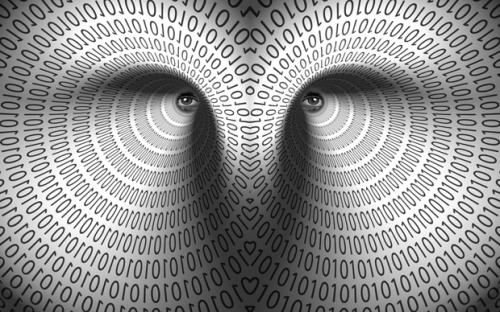
The neoliberal politics of disposability with its expanding machineries of civic and social death, terminal exclusion, and zones of abandonment constitute a new historical conjuncture and must be addressed within the emergence of a ruthless form of casino capitalism, which is constituted not only as an economic system but also a pedagogical force rewriting the meaning of common sense, agency, desire, and politics itself. The capitalist dream machine is back with huge profits for the ultra-rich, hedge fund managers, and major players in the financial service industries. In these new landscapes of wealth, exclusion, and fraud, the commanding institutions of a savage and fanatical capitalism promote a winner-take-all ethos and aggressively undermine the welfare state while waging a counter revolution against the principles of social citizenship and democracy.
Politics and power are now on the side of lawlessness as is evident in the state’s endless violations of civil liberties, freedom of speech, and the most constitutional rights, mostly done in the name of national security. Lawlessness wraps itself in repressive government policies such as the Patriot Act, the National Defense Authorization Act, Military Commissions, and a host of other legal illegalities. These would include the “right of the president “to order the assassination of any citizen whom he considers allied with terrorists,”[8] use secret evidence to detain individuals indefinitely, develop a massive surveillance panoptican to monitor every communication used by citizens who have not committed a crime, employ state torture against those considered enemy combatants, and block the courts from prosecuting those officials who commit such heinous crimes.[9] The ruling corporate elites have made terror rational and fear the modus operandi of politics.
Power in its most repressive forms is now deployed not only by the police and other forces of repression such as the 17 American intelligence agencies but also through a predatory and commodified culture that turns violence into entertainment, foreign aggression into a video game, and domestic violence into goose-stepping celebration of masculinity and the mad values of militarism. The mediaeval turn to embracing forms of punishment that inflict pain on the psyches and the bodies of young people, poor minorities, and immigrants, in particular, is part of a larger immersion of society in public spectacles of violence. Under the neo-Darwinian ethos of survival of the fittest, the ultimate form of entertainment becomes the pain and humiliation of others, especially those considered disposable and powerless, who are no longer an object of compassion, but of ridicule and amusement. Pleasure loses its emancipatory possibilities and degenerates into a pathology in which misery is celebrated as a source of fun. High octane violence and human suffering are now considered consumer entertainment products designed to raise the collective pleasure quotient. Brute force and savage killing replayed over and over in the culture now function as part of an anti-immune system that turns the economy of genuine pleasure into a mode of sadism that saps democracy of any political substance and moral vitality, even as the body politic appears engaged in a process of cannibalizing its own youth. It gets worse. The visibility of extreme violence in films such as John Wick (2014) and The Equalizer (2014) offer one of the few spaces amid the vacuity of a consumer culture where Americans can feel anything anymore.
Needless to say, extreme violence is more than a spectacle for upping the pleasure quotient of those disengaged from politics; it is also part of a punishing machine that spends more on putting poor minorities in jail than educating them. As American society becomes more militarized and “civil society organizes itself for the production of violence,”[10] the capillaries of militarization feed on and shape social institutions extending from the schools to local police forces. The police, in particular, have been turned into soldiers who view the neighbourhoods in which they operate as war zones. Outfitted with full riot gear, submachine guns, armoured vehicles, and other lethal weapons imported from the battlefields of Iraq and Iran, their mission is to assume battle-ready behaviour. Is it any wonder that violence rather than painstaking neighbourhood police work and community outreach and engagement becomes the norm for dealing with alleged ‘criminals’, especially at a time when more and more behaviours are being criminalised? Is it any wonder that the impact of the rapid militarization of local police forces on poor black communities is nothing short of terrifying and symptomatic of the violence that takes place in advanced genocidal states? For instance, according to a recent report produced by the Malcolm X Grassroots Movement entitled Operation Ghetto Storm, “police officers, security guards, or self-appointed vigilantes extra judicially killed at least 313 African-Americans in 2012…This means a black person was killed by a security officer every 28 hours.” The report suggests that ‘the real number could be much higher’.[11] Michelle Alexander adds to the racist nature of the punishing state by pointing out that “There are more African American adults under correctional control today — in prison or jail, on probation or parole — than were enslaved in 1850, a decade before the Civil War began.”[12] Meanwhile the real violence used by the state against poor minorities of color, women, immigrants, and low income adults barely gets mentioned, except when it is so spectacularly visible and cruel that it cannot be ignored as in the case of Eric Garner who was choked him to death by a New York City policeman after he was confronted for illegally selling untaxed cigarettes.
The authoritarian state empties politics of all vestiges of democracy given that the decisions that shape all aspects of the commanding institutions of society are now made largely in private, behind closed doors by the anonymous financial elite, corporate CEOs, rich bankers, the unassailable leaders of the military-industrial complex, and other kingpins of the neoliberal state. At the same time, valuable resources and wealth are extracted from the commons in order to maximize the profits of the rich while the public is treated to a range of distractions and diversions that extend from “military shock and awe overseas” to the banalities of a commodified culture industry and celebrity obsessed culture that short-circuits thought and infantilizes everything it touches. In the end, as Chomsky points out this amounts to an attempt by a massive public relations industry and various mainstream cultural apparatuses “to undermine democracy by trying to get uninformed people to make irrational choices.”[13]
Neoliberal authoritarianism has changed the language of politics and everyday life through a poisonous public pedagogy that turns reason on its head and normalizes a culture of fear, war, and exploitation. Even as markets unravel and neoliberalism causes increased misery, “the broader political and social consensus remains in place” suggesting that the economic crisis is not matched by a similar crisis in consciousness, ideas, language, and values.[14] Underlying the rise of the authoritarian state and the forces that hide in the shadows is a hidden politics indebted to promoting crippling forms of historical and social amnesia. The new authoritarianism is strongly indebted to what Orwell once called a “protective stupidity” that corrupts political life and divest language of its critical content.[15]
Yet, even as the claims and promises of a neoliberal utopia have been transformed into a Dickensian nightmare as the United States, and increasingly Canada, succumb to the pathologies of political corruption, the redistribution of wealth upward into the hands of the 1 percent, the rise of the surveillance state, and the use of the criminal justice system as a way of dealing with social problems, Orwell’s dark fantasy of a fascist future continues without massive opposition. Domestic terrorism now functions to punish young people whenever they exercise the right of dissent, protesting peacefully, or just being targeted because they are minorities of class and color and considered a threat and in some cases disposable, as was recently evident in the killing by a white policemen of Michael Brown in Ferguson, Missouri.
The emergence of the warrior cop and the surveillance state go hand in hand and are indicative not only of state-sanctioned racism but also of the rise of the authoritarian state and the dismantling of civil liberties. Brutality mixed with attacks on freedom of dissent and peaceful protest prompts memories of past savage regimes such as the dictatorships in Latin America in the 1970s and 1980s. The events in Ferguson speak to a history of violence in United States that Americans have chosen to forget at their own risk. Historical amnesia takes a toll. For instance, amid the growing intensity of state terrorism, violence becomes the DNA of a society that not only has a history of forgetting, but also refuses to deal with larger structural issues such as massive inequality in wealth and power, a government that now unapologetically serves the rich and powerful corporate interests, the growing militarization of everyday life, while elevating the power of money to an organising principle of governance.[16] What all of this suggests is a dismantling of what Hannah Arendt called “the prime importance of the political.”[17]
Underlying the carnage caused by neoliberal capitalism is a free market ideology in which individuals are cut off from the common good along with any sense of compassion for the other.[18] Economic Darwinism individualizes the social by shredding social bonds that are not commodified and in doing so depoliticizes, atomizes, and infantilizes the broader public. All problems are now defined as a problem of faulty character and a lack of individual resilience and responsibility. At the same time, freedom is reduced to consumerism and a modern day version of narcissism becomes the only guiding principle for living one’s life. Only under such circumstances can a book titled Selfish written by the vacuous Kim Kardashian and filled with 2000 selfies be published and celebrated in the mainstream media, mirroring a deeply disturbing principle of the larger society. What is crucial to recognize is that the central issues of power and politics can lead to cynicism and despair if casino capitalism is not addressed as a system of social relations that diminishes—through its cultural politics, modes of commodification, and market pedagogies—the capacities and possibilities of individuals and groups to move beyond the vicissitudes of necessity and survival in order to fully participate in exercising some control over the myriad forces that shape their daily lives.
What exists in the United States today and increasingly in Canada is fundamentally a new mode of politics, one wedded to a notion of power removed from accountability of any kind, and this poses a dangerous and calamitous threat to democracy itself, because such power is difficult to understand, analyze, and counter. The collapse of the public into the private, the depoliticization of the citizenry in the face of an egregious celebrity culture, and the disabling of education as a critical public sphere makes it easier for neoliberal capital with its hatred of democracy and celebration of the market to render its ideologies, values, and practices as a matter of common sense, removed from critical inquiry and dissent.
 With privatization comes a kind of collective amnesia about the potential democratic role of government, the importance of the social contract, and the importance of public values. For instance, war, intelligence operations, prisons, schools, transportation systems, and a range of other operations once considered public have been outsourced or simply handed over to private contractors who are removed from any sense of civic and political accountability. The social contract and the institutions that give it meaning have been transformed into entitlements administered and colonized by largely the corporate interests and the financial elite. Policy is no longer being written by politicians accountable to the American public. Instead, policies concerning the defense budget, deregulation, health care, public transportation, job training programs, and a host of other crucial areas are now largely written by lobbyists who represent mega corporations. How else to explain the weak deregulation policies following the economic crisis of 2007 or the lack of a public option in Obama’s health care policies? Or, for that matter, the more serious retreat from any viable notion of the political imagination that “requires long-term organizing—e.g., single-payer health care, universally free public higher education and public transportation, federal guarantees of housing and income security.”[19] The liberal center has moved to the right on these issues while the left has become largely absent and ineffective. Yet the fight for developing a radical democracy must continue on a domestic and global scale.
With privatization comes a kind of collective amnesia about the potential democratic role of government, the importance of the social contract, and the importance of public values. For instance, war, intelligence operations, prisons, schools, transportation systems, and a range of other operations once considered public have been outsourced or simply handed over to private contractors who are removed from any sense of civic and political accountability. The social contract and the institutions that give it meaning have been transformed into entitlements administered and colonized by largely the corporate interests and the financial elite. Policy is no longer being written by politicians accountable to the American public. Instead, policies concerning the defense budget, deregulation, health care, public transportation, job training programs, and a host of other crucial areas are now largely written by lobbyists who represent mega corporations. How else to explain the weak deregulation policies following the economic crisis of 2007 or the lack of a public option in Obama’s health care policies? Or, for that matter, the more serious retreat from any viable notion of the political imagination that “requires long-term organizing—e.g., single-payer health care, universally free public higher education and public transportation, federal guarantees of housing and income security.”[19] The liberal center has moved to the right on these issues while the left has become largely absent and ineffective. Yet the fight for developing a radical democracy must continue on a domestic and global scale.
Democracy is not compatible with capitalism but is congruent with a version of democratic socialism in which the wealth, resources, and benefits of a social order are shared in an equitable and just manner. Democracy as a promise means that society can never be just enough and that the self-reflection and struggles that enable all members of the community to participate in the decisions and institutions that shape their lives must be continually debated, safeguarded, and preserved at all costs. The rebuilding of a radical democracy must be accompanied with placing a high priority on renewing the social contract, embracing the demands of the commons, encouraging social investments, and the regeneration of the social contract. These are only a few of the issues that should be a central goal for the development of a broad-based radical social movement. I want to emphasize that I am not suggesting that developing a new understanding of politics as a call to reclaim a radical democracy be understood as simply a pragmatic adjustment of the institutions of liberal democracy or a return to the social democracy of the New Deal and Great Society.
On the contrary, any rethinking of the political can only be comprehended as part of a radical break from liberalism and formalistic politics if there is to be any move towards a genuine democracy in which matters of equality, power, and justice are central to what can be called a radical democratic politics. Such a task necessitates a politics and pedagogy that not only expands critical awareness and promotes critical modes of inquiry but also sustains public spheres, builds new modes of solidarity and connections and promotes strategies and organizations that create not simply ruptures such as massive demonstrations but real changes that are systemic and long standing. If such a politics is to make any difference, it must be worldly; that is, it must incorporate a critical public pedagogy and an understanding of cultural politics that not only contemplates social problems but also addresses the conditions for new forms of democratic political exchange and enables new forms of agency, power, and collective struggle. The collapse of the United States into neoliberal authoritarianism signals not simply a crisis of politics and democracy, but a crisis of ideas, values, and agency itself. Hence, calling for a revival of the educative nature of politics and the radical imagination is more than a simply call to find ways to change consciousness; it is first and foremost an attempt to understand that education is at the center of a struggle over what kinds of agency will be created in the interest of legitimating the present and producing a particular kind of future. This is an imminently educative, moral, and political task and it is only through such recognition that initial steps can be taken to challenge the powerful ideological and affective spaces through which neoliberalism produces the desires, identities, and values that bind people to its forms of predatory governance.
The moral, political, and economic violence of neoliberalism must be made visible, its institutional structures dismantled, and the elite interests it serves exposed. The fog of historical, social and political amnesia must be eliminated through the development of educational programs, pedagogical practices, ideological interventions, and public narratives that provide the critical and analytical tools to enable the public to analyze both underlying ideologies and institutions of neoliberal capitalism as well as the intellectual and economic resources needed to provide meaningful alternatives to the corporate authoritarianism that passes itself off as an updated mode of democracy. What is important here is that the struggle against neoliberalism focus on those forms of domination that pose a threat to those public spheres essential to developing the critical formative cultures that nourish modes of thinking, analysis, and social formations necessary for a radical democracy.
In addition, the left has to do more than chart out the mechanisms through which neoliberal authoritarianism sustains itself. And for too many on the left this means simply understanding the economic forces that drive neoliberal global capitalism. While this structural logic is important, it does not go far enough. As Stuart Hall has insisted “There’s no politics without identification. People have to invest something of themselves, something that they recognize is meaningful to them, or speaks to their condition and without that moment of recognition” any effort to change the way people inhabit social relations of domination will fail.[20] Pierre Bourdieu takes this logic further in arguing that left has often failed to recognize “that the most important forms of domination are not only economic but also intellectual and pedagogical, and lie on the side of belief and persuasion”[21] He insists, rightly, that it is crucial for the left and other progressives to recognize that intellectuals bear an enormous responsibility for challenging this form of domination by developing tactics “that lie on the side of the symbolic and pedagogical dimensions of struggle.”[22]
If neoliberal authoritarianism is to be challenged and overcome, it is crucial that intellectuals, unions, workers, young people, and various social movements unite to reclaim democracy as a central element in fashioning a radical imagination that foregrounds the necessity for drastically altering the material and symbolic forces that hide behind a counterfeit claim to participatory democracy. This means imagining a radical democracy that can provide a living wage, decent health care, public works, and massive investments in education, child care, housing for the poor, along with a range of other crucial social provisions that can make a difference between living and dying for those who have been cast into the ranks of the disposable.

There are new signs indicating that the search for a new understanding of politics and the refashioning of a radical imagination are emerging, especially in Greece, Germany, Spain, and Denmark, where expressions of new political formations can be found in political groups such as Podemos, Die Linke, Syriza, and the Red-Green Alliance. While these political formations have differences, what they share is a rejection of stale reformism that has marked liberal politics for the last 40 years. These new political formations are offering alternatives to a new kind of social order in which capitalism does not equal democracy. But more importantly, they are not tied merely to unions and older political factions and are uniting with social movements under a broad and comprehensive vision of politics and change that goes beyond identity politics and organizes for the long haul. Moreover, as Juan Pablo Ferrero points out, these parties not only take seriously the need for economic change but also the need for new cultural formations and modes of change.[23] The struggle against neoliberal common sense is as important as the struggle against those institutions and material modes of capital that are the foundation of traditional politics of resistance. Language, communication, and pedagogy are crucial to these movements as part of their attempt to construct a new kind of informed and critical political agent, one freed from the orbits of neoliberal privatization and the all-embracing reach of a commodified and militarized society.
What Podemos, Syriza, and other new political movements on the left make clear is that the fight against neoliberalism and the related anti-democratic tendencies that inform it must not settle for simply reforming the existing parameters of the social order. Neoliberalism has created an economic, cultural, and social system and social order that is not only as broken as it is dangerous, but also pathological in the violence and misery it produces. Any viable struggle must acknowledge that if the current modes of domination are to change, a newly developed emphasis must be placed on creating the formative culture that inspires and energizes young people, educators, artists, and others to organize and struggle for the promise of a substantive democracy.
At the same time, particular injustices must be understood through the specificity of the conditions in which they develop and take hold and also in relation to the whole of the social order. This means developing modes of analyses capable of connecting isolated and individualized issues to more generalized notions of freedom, and developing theoretical frameworks in which it becomes possible to translate private troubles into broader more systemic conditions. At the very least, a new political imaginary suggests developing modes of analyses that connects the dots. This is a particularly important goal given that the fragmentation of the left has been partly responsible for its inability to develop a wide political and ideological umbrella to address a range of problems extending from extreme poverty, the assault on the environment, the emergence of the permanent warfare state, the abolition of voting rights, the assault on public servants, women’s rights, and social provisions, and a range of other issues that erode the possibilities for a radical democracy. Neoliberalism stands for the death of democracy and the commodification and repression of any movement that is going to successfully challenge it.

One of the most serious challenges facing progressives is the task of developing a discourse of both critique and possibility. This means insisting that democracy begins to fail and political life becomes impoverished in the absence of those vital public spheres such as higher education in which civic values, public scholarship, and social engagement allow for a more imaginative grasp of a future that takes seriously the demands of justice, equity, and civic courage. Such a challenge demands not only confronting symptoms as a way of decreasing the misery and human suffering that people experience on a daily basis, but most importantly addressing the root causes that produce the despotism and culture of cruelty that marks the current period. The time has come to develop a political language in which civic values, social responsibility, and the institutions that support them become central to invigorating and fortifying a new era of civic imagination, and a renewed sense of social agency. A revitalized politics for imagining a radical democracy must promote an impassioned international social movement with a vision, organization, and set of strategies to challenge the neoliberal nightmare engulfing the planet. The dystopian worlds of Orwell and Huxley are sutured in fear, atomization, and a paralyzing anxiety. Unfortunately, these dystopian visions are no longer works of fiction. The task ahead is to relegate them to the realm of dystopian fiction so they can remind us that a radical democracy is not simply a political project, but a way of life that has to be struggled over endlessly.
Henry A. Giroux currently holds the McMaster University Chair for Scholarship in the Public Interest in the English and Cultural Studies Department and a Distinguished Visiting Professorship at Ryerson University. His most recent books are America’s Education Deficit and the War on Youth (Monthly Review Press, 2013) and Neoliberalism’s War on Higher Education (Haymarket Press, 2014). His web site is www.henryagiroux.com.
Notes.
[1] Martin Gilens and Benjamin I. Page, “Testing Theories of American Politics: Elites, Interest Groups, and Average Citizens,” Perspectives on Politics, Volume 12 / Issue 03 (September 2014), p 581.
[2]Tom McKay, “Princeton Concludes What Kind of Government America Really Has, and It’s Not a Democracy,” Popular Resistance (April 16, 2014). Online:
http://www.policymic.com/articles/87719/princeton-concludes-what-kind-of-government-america-really-has-and-it-s-not-a-democracy
[3] Alain Badiou, The Rebirth of History, trans. Gregory Elliott (London, UK: Verso, 2012), p. 6.
[4] Leo Lowenthal, “Atomization of Man,” False Prophets: Studies in Authoritarianism, (New Brunswick, NJ: Transaction Books, 1987), pp. 191-182
[5] Brad Evans and Julien Reid, Resilient Life: The Art of living Dangerously (London: Polity, 2014).
[6] Robert Jay Lifton, Death in Life: Survivors of Hiroshima (Chapel Hill: University of North Carolina Press, 1987), p. 479. See Lynn Worsham’s brilliant use of Lifton’s work in her “Thinking with Cats (More to Follow),” JAC 30:3-4 (2010), pp. 405-433.
[7] Georges Didi-Huberman, Images in Spite of All: Four Photographs from Auschwitz, trans. Shane B. Lillis (Chicago: University of Chicago Press, 2008), pp. 1-2.
[8] Jonathan Turley, “10 reasons the U.S. is no longer the land of the free,” The Washington Post, (January 13, 2012). Online:
http://articles.washingtonpost.com/2012-01-13/opinions/35440628_1_individual-rights-indefinite-detention-citizens
[9] For a clear expose of the emerging surveillance state, see Glenn Greenwald, No Place to Hide (New York: Signal, 2014); Julia Angwin, Dragnet Nation: A Quest for Privacy, Security, and Freedom in a World of Relentless Surveillance (New York: Times Books, 2014); Heidi Boghosian, Spying on Democracy: Government Surveillance, Corporate Power, and Public Resistance, (City Lights Books, 2013).
[10] Catherine Lutz, “Making War at Home in the United States: Militarization and the Current Crisis,” American Anthropologist, (104:3, 2002), pp. (723)
[11] Adam Hudson, “1 Black Man Is Killed Every 28 Hours by Police or Vigilantes: America Is Perpetually at War with Its Own People,” AlterNet (March 28, 2013). Online: http://www.alternet.org/news-amp-politics/1-black-man-killed-every-28-hours-police-or-vigilantes-america-perpetually-war-its; see also the report titled Operation Ghetto Storm. Online: http://mxgm.org/wp-content/uploads/2013/04/Operation-Ghetto-Storm.pdf
[12]Michelle Alexander, “Michelle Alexander, The Age of Obama as a Racial Nightmare,” Tom Dispatch (March 25, 2012). Online: http://www.tomdispatch.com/post/175520/best_of_tomdispatch%3A_michelle_alexander,_the_age_of_obama_as_a_racial_nightmare/
[13] Noam Chomsky, “The Kind of Anarchism I believe in, and What’s Wrong with Litertarians,” AlterNet (March 28, 2013). Online: http://www.alternet.org/civil-liberties/noam-chomsky-kind-anarchism-i-believe-and-whats-wrong-libertarians
[14] Stuart Hall, Doreen Massey, and Michael Rustin, “After neoliberalism: analysing the present,” Soundings (Spring 2013). Online”
http://www.lwbooks.co.uk/journals/soundings/pdfs/s53hallmasseyrustin.pdf
[15] Orville Schell, “Follies of Orthodoxy,” What Orwell Didn’t Know: Propaganda and the New Face of American Politics, (New York, NY: Perseus Books Group, 2007), xviii
[16] See, especially, Radley Balko, Rise of the Warrior Cop: The Militarization of America’s Police Forces (New York: Public Affairs, 2013), Michelle Alexander, The New Jim Crow (New York: The New Press, 2010), and (and Jill Nelson, ed. Police Brutality (New York: Norton, 2000).
[17] Hannah Arendt, Hannah Arendt: The Last Interview and Other Conversations, (Brooklyn, NY. : Melville House Publishing, 2013), pp. 33-34.
[18] Paul Buchheit, “The Carnage of Capitalism,” AlterNet (August 17, 2014). Online:
http://www.commondreams.org/views/2014/08/18/carnage-capitalism
[19] Adolph Reed Jr., “Nothing Left: The Long, Slow Surrender of American Liberals,” Harper’s Magazine (March 2014), p. 29.
[20] Stuart Hall and Les Back, “In Conversation: At Home and Not at Home”, Cultural Studies, Vol. 23, No. 4, (July 2009), pp. 680-681
[21] Pierre Bourdieu and Gunter Grass, “The ‘Progressive’ Restoration: A Franco-German Dialogue,” New Left Review 14 (March-April, 2002), P. 2.
[22] Pierre Bourdieu, Acts of Resistance (New York: Free Press, 1998), p. 11.
[23] Juan Pablo Ferrero, “Are you ready for a new kind of left-wing politics?” The Conversation (October 29, 2014). Online: http://theconversation.com/are-you-ready-for-a-new-kind-of-left-wing-politics-33511
 Pour Fouché, pas de bonne police et de régime stable sans une connaissance approfondie de la société permettant de renseigner l’État sur les atteintes sécuritaires à ses intérêts. Mais pour le ministre de la police de Napoléon Bonaparte, de telles pratiques n’entrent pas en contradiction avec l’idéal démocratique, au contraire : « Il ne faut pas croire qu’une police établie par ces vues puisse inspirer des alarmes à la liberté individuelle, au contraire, elle lui donnerait une nouvelle garantie et une puissance plus pure et plus sûre d’elle-même. » La surveillance administrative du pays devient une des attributions du gouvernement et sera au cœur des attributions de l’État moderne ; une surveillance et un contrôle de l’État qui seront les futurs outils des régimes totalitaires du XXe siècle.
Pour Fouché, pas de bonne police et de régime stable sans une connaissance approfondie de la société permettant de renseigner l’État sur les atteintes sécuritaires à ses intérêts. Mais pour le ministre de la police de Napoléon Bonaparte, de telles pratiques n’entrent pas en contradiction avec l’idéal démocratique, au contraire : « Il ne faut pas croire qu’une police établie par ces vues puisse inspirer des alarmes à la liberté individuelle, au contraire, elle lui donnerait une nouvelle garantie et une puissance plus pure et plus sûre d’elle-même. » La surveillance administrative du pays devient une des attributions du gouvernement et sera au cœur des attributions de l’État moderne ; une surveillance et un contrôle de l’État qui seront les futurs outils des régimes totalitaires du XXe siècle.



 del.icio.us
del.icio.us
 Digg
Digg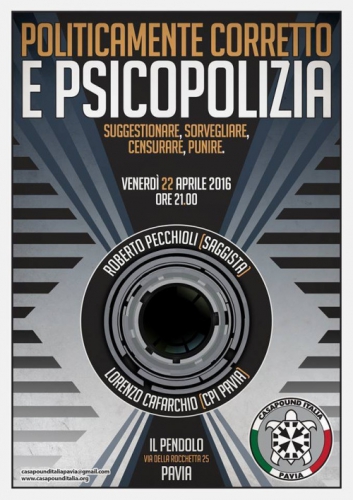

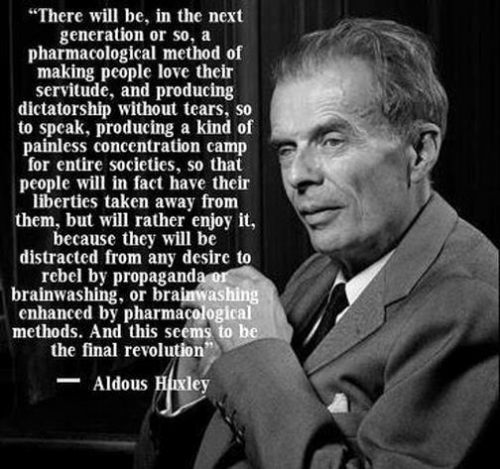








 Last night, I came across an incredibly important article from the New York Times, which described Facebook’s plan to provide direct access to other websites’ content in exchange for some sort of advertising partnership. The implications of this are so huge that at this point I have far more questions than answers.
Last night, I came across an incredibly important article from the New York Times, which described Facebook’s plan to provide direct access to other websites’ content in exchange for some sort of advertising partnership. The implications of this are so huge that at this point I have far more questions than answers.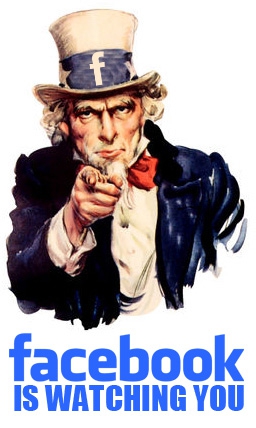 While this is scary to someone like me, to Facebook it is an abomination. The company doesn’t want people to leave their site ever — for any reason. Hence the aggressive push to carry outside news content, and create a better positioned alternative web centrally controlled by it. This is a huge power play move.
While this is scary to someone like me, to Facebook it is an abomination. The company doesn’t want people to leave their site ever — for any reason. Hence the aggressive push to carry outside news content, and create a better positioned alternative web centrally controlled by it. This is a huge power play move. 
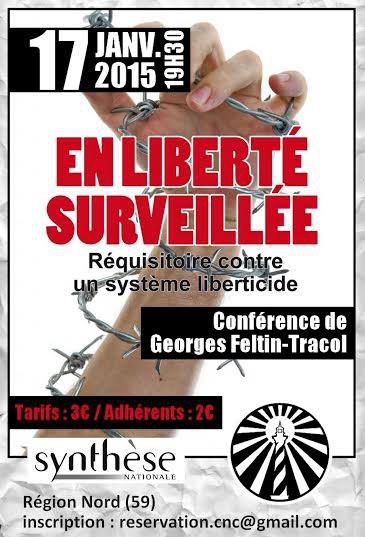

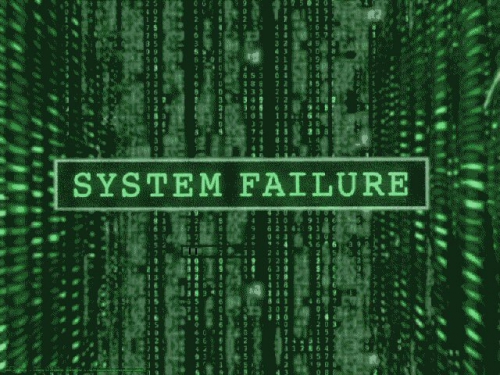
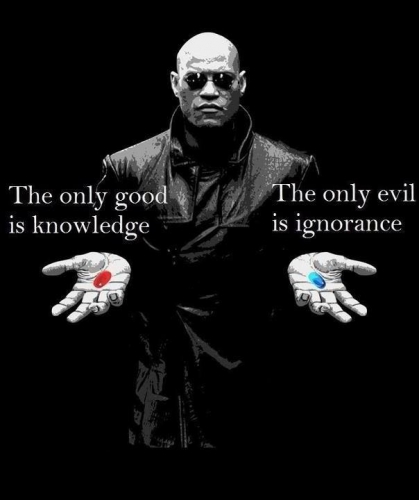




 With privatization comes a kind of collective amnesia about the potential democratic role of government, the importance of the social contract, and the importance of public values. For instance, war, intelligence operations, prisons, schools, transportation systems, and a range of other operations once considered public have been outsourced or simply handed over to private contractors who are removed from any sense of civic and political accountability. The social contract and the institutions that give it meaning have been transformed into entitlements administered and colonized by largely the corporate interests and the financial elite. Policy is no longer being written by politicians accountable to the American public. Instead, policies concerning the defense budget, deregulation, health care, public transportation, job training programs, and a host of other crucial areas are now largely written by lobbyists who represent mega corporations. How else to explain the weak deregulation policies following the economic crisis of 2007 or the lack of a public option in Obama’s health care policies? Or, for that matter, the more serious retreat from any viable notion of the political imagination that “requires long-term organizing—e.g., single-payer health care, universally free public higher education and public transportation, federal guarantees of housing and income security.”
With privatization comes a kind of collective amnesia about the potential democratic role of government, the importance of the social contract, and the importance of public values. For instance, war, intelligence operations, prisons, schools, transportation systems, and a range of other operations once considered public have been outsourced or simply handed over to private contractors who are removed from any sense of civic and political accountability. The social contract and the institutions that give it meaning have been transformed into entitlements administered and colonized by largely the corporate interests and the financial elite. Policy is no longer being written by politicians accountable to the American public. Instead, policies concerning the defense budget, deregulation, health care, public transportation, job training programs, and a host of other crucial areas are now largely written by lobbyists who represent mega corporations. How else to explain the weak deregulation policies following the economic crisis of 2007 or the lack of a public option in Obama’s health care policies? Or, for that matter, the more serious retreat from any viable notion of the political imagination that “requires long-term organizing—e.g., single-payer health care, universally free public higher education and public transportation, federal guarantees of housing and income security.”

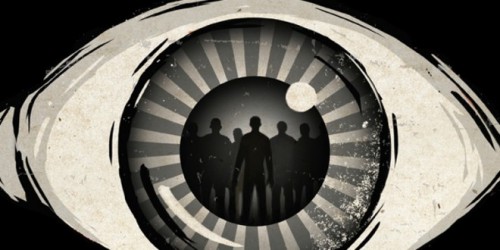


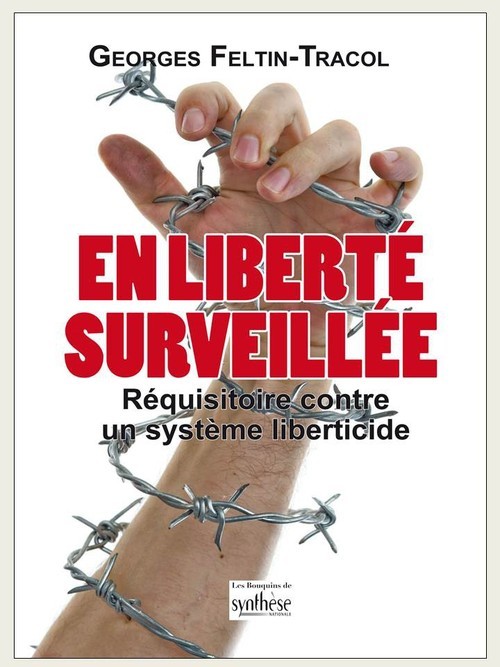





.jpg)